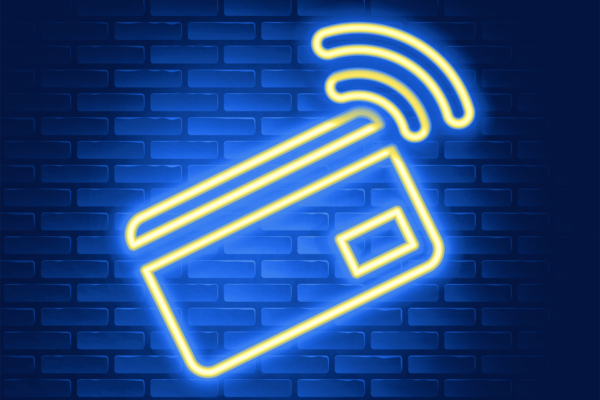
6 Rules for Credit Cards + College Students
Applying for your first credit card is a significant financial milestone in a student’s life. If used responsibly, it can help you build credit— something vital as you enter adulthood. Luckily, making smart moves with your credit card doesn’t have to be complicated. We wrote this article to help students see the benefits of getting a credit card, as well as six tips on how to use it wisely.
Why Should Students Get a Credit Card?
You might have been warned of credit cards and have heard horror stories of their dangers. While they can certainly get you in trouble if you spend recklessly, a credit card can be a beneficial financial product when used wisely. Students can especially benefit by using a credit card as a credit-builder or for emergencies. It is important to realize that credit is neither good or bad; it is how you manage your credit that determines whether your build a good credit or not.
Credit Cards Can Help Build Your Credit
Credit scores play a larger role in life than you might think. They help you get approved for an apartment or home rental, home mortgages, auto loans, and more. But good credit doesn’t appear overnight. It’s essential to start building your credit early so that when you’re ready to make these moves, you’ll already be sitting in an advantageous position.
Credit card companies will report your account to the national credit bureaus, who then create your credit report. Using a credit card, responsibly will earn you an improved credit score and is one way to show creditors that you are a trustworthy borrower.
They Can Come in Handy in Emergencies
If you’re a college student, you likely don’t have a large stash of money lying around. Even if you’ve started saving an emergency fund, between living expenses and your impending student loan payments, you may be months or years away from where it needs to be.
If you find yourself needing to pay for something like a car repair or a hefty doctor bill but don’t have the cash on hand, a credit card can come in handy. While it is always a good idea to pay for these types of things with cash, having the option to pay it off over several months can be helpful.
Six Credit Card Rules for Students
Here are six “rules” to help you use your student credit card responsibly.
1. Don’t spend more than you have
It can be tempting to spend, spend, spend when you have a credit card. After all, you don’t have to pay it off all at once. However, this is a dangerous mindset to get into.
With a credit card, it is so important to remember that not only do you have to pay back what you borrow, but you have to pay to borrow it in the first place. If you don’t have the money, don’t spend it.
Think of it this way, would you pay $1.30 for a soda that costs $1? When you use a credit card to pay for an item with a interest rate of 29.99% – not an uncommon interest rate, especially if you don’t have a history of good credit – and you don’t pay off the full amount on your credit card bill at the end of the billing cycle, you are paying interest on your charged item.
2. Pay off your bill in full every month and pay it on time
Building on our first piece of advice, don’t settle for paying the minimum balance. This approach is how you end up buried under high-interest payments. Instead, do your best to carry a balance that will let you pay off your debit in full each month. By doing so, you avoid interest charges from accumulating and building up unwanted credit card debt.
Payment history is a massive part of your credit score. Missing payments will hurt your credit.”
If you do get in a financial bind for one month, it is critical that you make at least the minimum payment before the due date. Nothing hurts your credit more than a pattern of late payments. If you can pay more than the minimum payment, absolutely do so to minimize your interest costs.
So, the bottom line is to always make your credit card payments on time. Payment history is a massive part of your credit score, so missing payments or making them after the due date will hurt your credit. You will also likely face costly late fees and penalty interest rates. If possible, set up automatic payments or set a reminder each month to log onto your account and pay your bill. Payment history is a HUGE factor in your credit score
3. Don’t open a card for every offer you receive
As soon as you turn 18, you’ll probably start receiving credit card offer after credit card offer. On top of that, it seems like every major retail store you walk into nowadays offers its own card with lucrative deals.
Though opening a credit card is a good thing, opening too many is a bad thing. Too many outstanding lines of credit can make you look risky, therefore hurting your credit score. It can also make keeping track of your bills and spending more difficult, resulting in skipped payments and overspending.
Remember: every time you apply for a new card, your credit file will register this as a hard credit hit. Too many inquiries in a short span can seriously affect your credit score.
4. Don’t max out your card
Another factor in your credit score is overall credit utilization. This is the ratio of your outstanding credit balances to your credit limits. Experts recommend keeping this number under 30%.
For example, suppose you have a credit card with a $1,000 monthly limit and an outstanding balance of $200. In that case, your credit utilization ratio is 20%. Keeping a manageable credit card balance can be an important part of this equation.
You can keep this number low by not spending too much each month, making early credit card payments, or increasing your credit limit.
5. Find a credit card that offers rewards
If you’re going to be spending money, you might as well get something in return! Many cards nowadays are rewards credit cards.
Credit card companies offer three main types of rewards cards: cash back, points, and travel rewards. Each of these has its advantages, most of which depend on your unique spending habits and reward desires. Regardless of which you choose, getting a little extra back always goes a long way for students!
6. Use your credit card as a way to budget your money
Budgeting is a great skill to develop early in life. Credit cards can help you visualize how much you’re spending per month for things like groceries, gas, eating out, and more. At the end of the month, you’ll be able to see how much you spent in these categories.
Pay attention to your monthly spending to catch any unauthorized purchases. In today’s digital age, online credit card theft happens all too often. By reviewing your monthly statement each month, you’re more likely to catch any discrepancies.
Most credit card companies offer mobile apps nowadays that make keeping track of purchases easy. These apps also make it easy to pay your bills, use your rewards, and more. Take advantage of them if they’re offered!
Conclusion
Credit cards are great tools if you use them wisely. By just following these six tips, you’ll be well on your way to building a healthy credit score, which will help you later on down the line.
Learn About Our Student Rewards Credit Card
Find out if a Visa Signature® College Real Rewards Card is the right option for the college student in your family.



